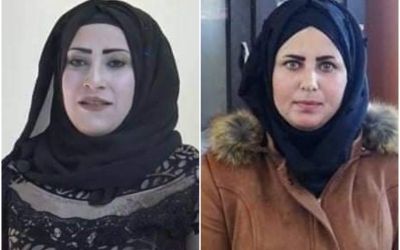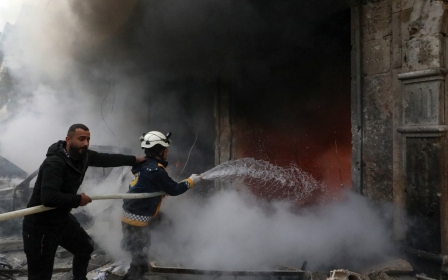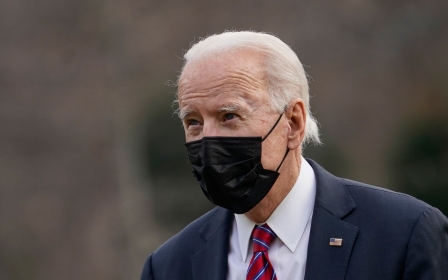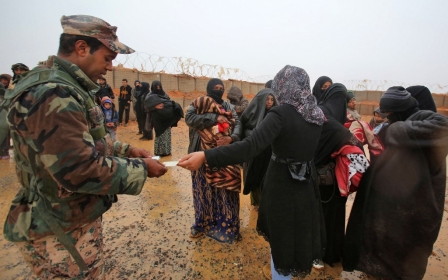Syria: Activist's arrest by Turkish-backed forces raises concerns over freedoms
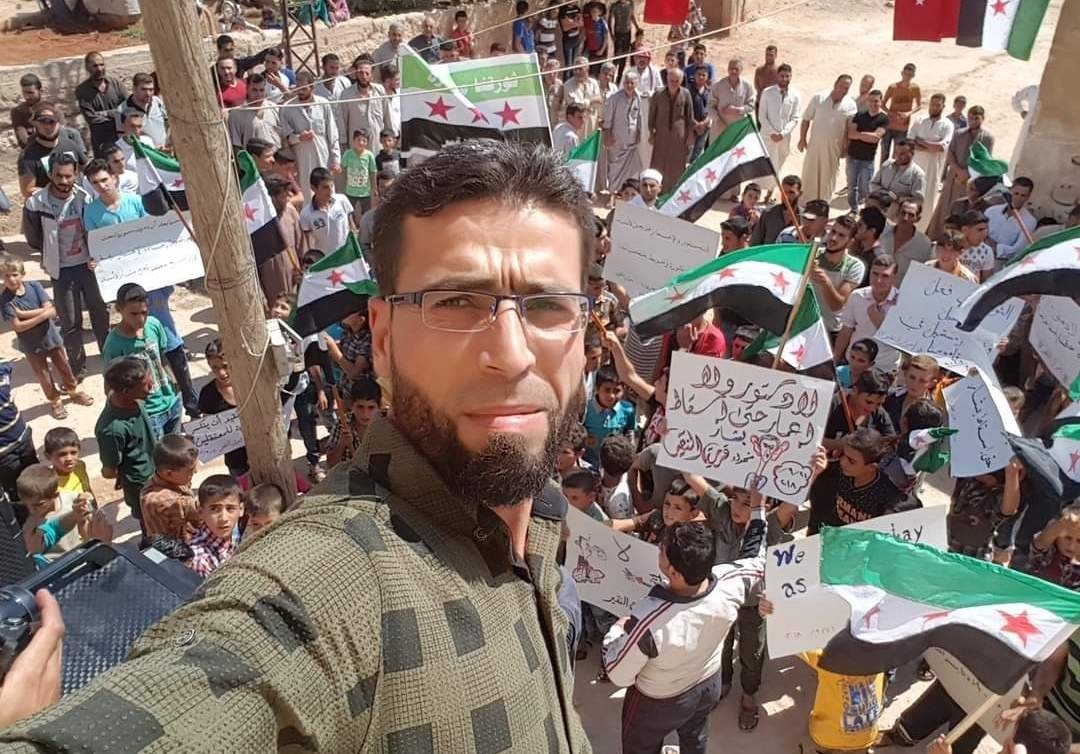
The arrest of a prominent media activist by Turkish-backed rebel forces has raised concerns about freedom of expression in northern Syria
Hayyan Ibrahim Hababa, a media activist and father of three, was picked up in the city of Azaz on 21 January by security officials linked to the Syrian National Army (SNA), which controls much of northern Syria with support from Turkey.
He was released without charge over the weekend, but friends and family said he faced mistreatment and abuse while being held in detention.
Little information was officially given for his arrest, although one family told Middle East Eye that he thought it might be linked to a crackdown on locals suspected of links to the Kurdistan Worker's Party (PKK).
"Until now we do not know anything about the reason for Hayyan’s arrest, but six days after his arrest, we received news that said the military police had arrested a terrorist group affiliated with the PKK and one of the detainees mentioned a name similar to Hayyan’s name, so this is what we expect will be the reason for his arrest," said Amer Ibrahim Hababa.
New MEE newsletter: Jerusalem Dispatch
Sign up to get the latest insights and analysis on Israel-Palestine, alongside Turkey Unpacked and other MEE newsletters
'All who know Hayyan know him as one of the first revolutionaries against the regime'
- Amer Ibrahim Hababa, brother
"But what is certain to us [is] that Hayyan has no links [to the PKK] and all who know Hayyan know him as one of the first revolutionaries against the regime."
Hababa had been a media officer for the Free Economists Syndicate, and had also worked in a healthcare centre in Azaz.
According to Amer, around 2am on the day of his arrest, Hayyan's house was stormed by the Azaz military police, who searched extensively, including "his children's toys" and his wife's mobile phone.
Hababa's arrest comes as a Syrian human rights organisation released a report alleging that Turkish-backed forces in Syria arrested 877 civilians in 2020.
Syrians for Truth and Justice (STJ) said that out of the 877 arrested, only 420 had been released, with the remainder's whereabouts unknown.
A journalist friend of Hababa, who did not want to give his name out of security fears, said he had obtained information from within the military police centre in Azaz that Hababa was being kept in a cell designed for solitary confinement along with two other men, forcing them to squat in order to sleep.
He added that Hababa had been subjected to a torture method called shabeh, where a prisoner's hands would be tightly bound with a rope. They would then use the rope to pull them upright until they were on their toes, exerting a painful strain on the wrists and the whole body.
'A security case'
Hisham Derbala, commander of the military police in Azaz, denied that Hababa had been subjected to torture and said there was "a security case against him related to the security of the liberated areas in general" to which another detainee had testified Hababa's involvement.
"Regarding the method of his arrest, the arrest was carried out in an official manner after knocking the door of his house formally, and there was no storming as it is being reported. His house was not tampered with, and […] it is natural to take the means of communication from cell phones and laptops for investigation and scrutiny within the investigation," he added.
Over the weekend, car bomb attacks killed at least 12 people in towns across northern Syria, including seven civilians.
The first attack took place near a cultural centre in Azaz and killed seven civilians including a young girl, according to the the British-based Syrian Observatory for Human Rights.
Although no one has claimed responsibility for the bombings, Turkey has regularly blamed the PKK and its allies for such attacks.
Middle East Eye delivers independent and unrivalled coverage and analysis of the Middle East, North Africa and beyond. To learn more about republishing this content and the associated fees, please fill out this form. More about MEE can be found here.


